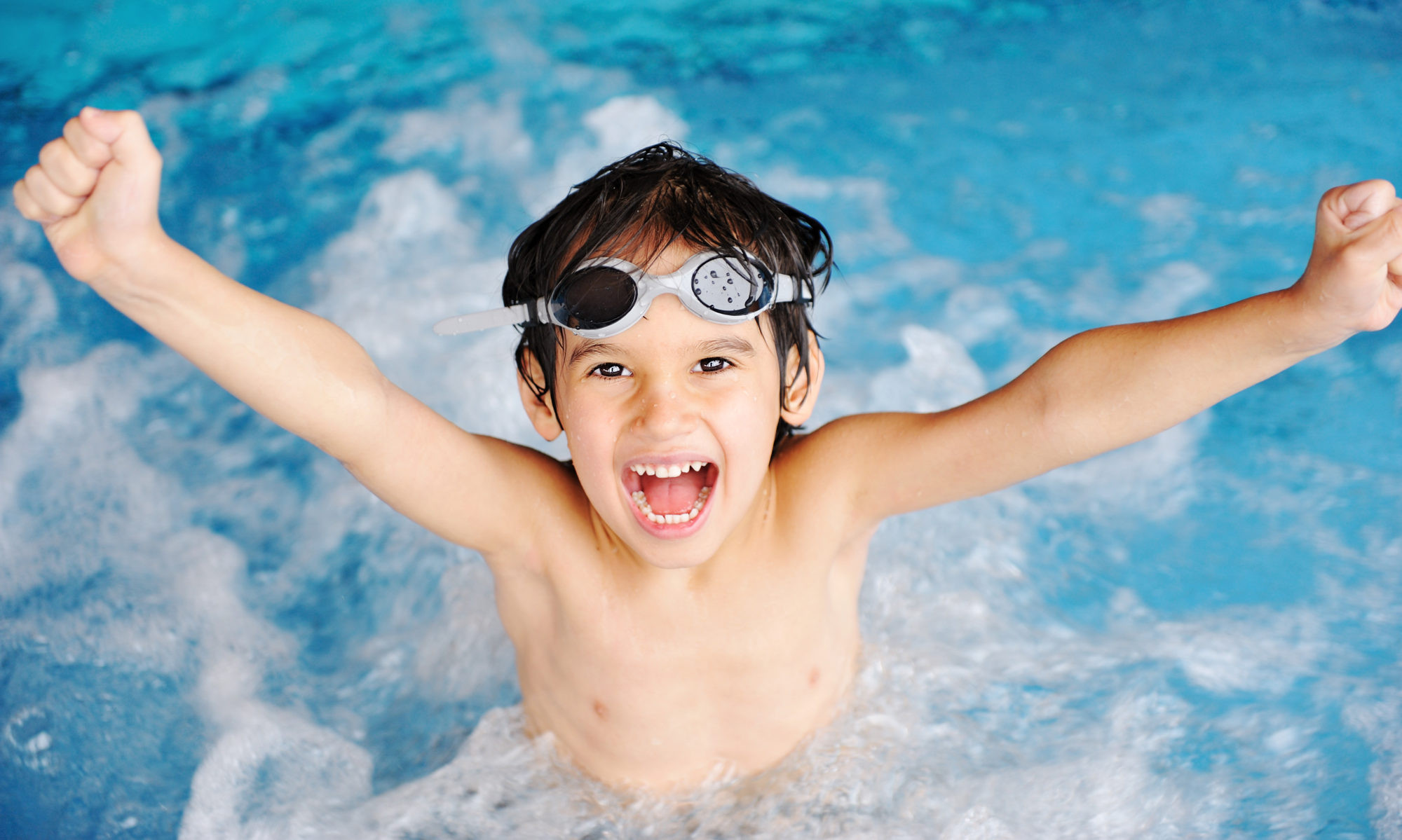All five of your kids’ physical senses are being bombarded while they’re learning to swim. In order to help them understand their physical experience, you’ll need a sixth sense. ESP? Nope. Something you already have.
Empathy. Imagine your child’s experience of the water. It’s different from his experience on the land in almost every way.
Kids’ Sensory Experience of Swimming
The experience of swimming is dramatically different than the experience of being on dry land for all five senses.
Sight
Things look weird underwater, and the water feels strange on your eyes. Goggles help if your child is uncomfortable with these sensations.
Hearing
Your child can’t hear well underwater. Sound is muted. The feeling of water getting into his ears and draining out is strange.
Smell
Chemicals that keep the water in the pool fit for swimming can also be hard on kids’ noses. For the first ten minutes in the pool, until the awareness of the smell fades, a strong smell of chlorine can be distracting and unpleasant.
Taste
Swallowed pool water won’t taste like the water your kids are used to drinking at home.
Touch
The impact of the water on the other four senses is nothing compared to its impact on touch. It’s a bit of a cheat to call touch the fifth sense, because it’s much more than just the feel of the water on skin.
- Weight: The feel of the water on his body is much heavier than the air he’s used to. The extra pressure on his body can feel confining.
- Balance: The way his body balances in the water is different than it is on the land. It will make him feel less coordinated than he does on land.
- Body Position: His body position is different in the water. On land, we’re used to aiming for an upright orientation. In water, horizontal is ideal. You can practice the idea of horizontal on land by having your child crawl or roll on the ground, just to remind him that he’s experienced this position and what it feels like.
- Movement: Moving through the water feels different. The water resists more than air, so it’s harder to move through it. On land, our legs do most of the work moving our bodies around. In the water, our arms and torsos do most of the work.
- Breathing: Breathing in the water is different. On land, your child doesn’t have to pay attention to the position of his head or the timing of his breathing. He just breathes whenever he needs to. In the water, he has to be aware of timing and position or risk getting a big gulp or snort of water.
- Metabolism and heat loss: His body will lose heat faster—up to 25 times faster—in the water than it does on land. Even if he’s wearing a wet suit, he’ll be starting to cool off from the moment he gets into the water.
How Your Kids’ Sensory Experience Affects How You Teach Them to Swim
Pay attention while you’re teaching them. If it looks like they’re experiencing sensory overload, give them a break.
After they get out of the water, their brains will still be analyzing and creating a cohesive understanding of their time swimming. Rest and recovery time are important for your kids’ sensory and mental processing of their experiences in the water. Make sure to give them plenty of unstructured play and rest time out of the pool to process. Even when you’re not in the pool, they’re working on learning to swim.
